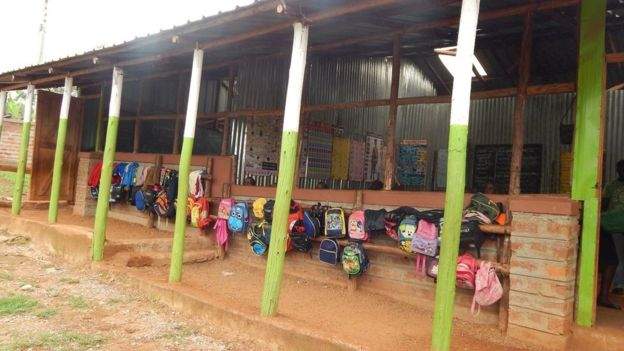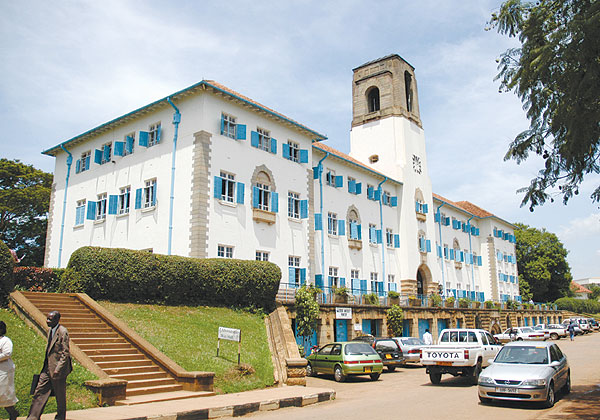Bridge International has been criticized for classrooms that are partially built
All courses and subjects taught by international schools in Uganda will be vetted and approved by the National Curriculum Development Centre (NCDC) if the National Curriculum Development Centre Amendment Bill 2020 is passed into law.
This comes after several complaints that some institutions were teaching courses contrary to societal norms.
While introducing The National Curriculum Development Centre Amendment Bill 2020, John Muyingo, Minister of State for Higher Education said that the bill seeks to broaden the representation of education sector in curriculum development by including new stakeholders and harmonise the financial year of the Centre to the financial year of Government.
Grace Baguma, the NCDC Executive Director said that clause 2 of the Bill seeks to amend section 2 of the Act to provide for other functions of the Centre, including vetting and approving any international curriculum to be used in Uganda before registration and licensing of the institution or school that intends to use the curriculum.
“It wasn’t reflected in the law, it hasn’t been in our system and we are bringing it on board so that before these schools can register and licensed, their curriculum must be vetted and see whether they conform to the norms and beliefs of the country,” she explained.
The Bill also seeks to amend the definition of financial year to align that with government, because initially, the Centre followed the calendar year, with Baguma saying they have been having challenges of reporting to council.
The Bill also seeks to broaden membership of the Council to provide for representation from Uganda Manufacturers Association, Uganda Law Society, a representative from Institute of Professional Engineers, Director of Federation of Employers, Chairperson of Vice Chancellor’s Forum because the old Act talks of only Makerere University yet the Universities have increased so, it is time they are represented as a body.
There is a proposal to Amend section 17 of the Act to change membership of academic steering board, because at the moment, there are only five people that decide on programmes, which Baguma said is so limiting and they are moving to increase the number to 12.
Jacob Opolot, Chairperson Education Committee wondered why only engineers and lawyers have been considered on the Council, while leaving out other professions.
Joseph Ssewungu (Kalungu West) questioned the criteria used to decide on Uganda Law Society, instead of considering Law Council, a body mandated to oversee the quality of lawyers produced on market.
In a related development, Minister Muyingo has asked commercial banks to back off private school owners choking on loans.
This is after MP Ssewungu questioned plan Government has on dealing with scrabbles between the private school owners and banks that are threatening to sell off schools to recover their loans.
“We have agreed with Ministry of Finance that the Ministry of Finance is going to communicate about how banks are tasked not to suffocate institutions and reschedule payment of the loans. That is an agreed position. It is Finance going to give out details. Our education institutions shouldn’t be harassed, they should be given time,” the Minister said.
It should be recalled that in March 2020, President Museveni ordered for the closure of all education institutions as a measure to contain the spread of COVID-19.
However, National Planning Authority told Parliament that the continued closure of schools will leave disastrous impact on Uganda’s education sector with approximately 1,534,000 primary school children’s future remaining uncertain. At secondary level, a total of 834 (472 urban and 360 rural) poor private schools are likely to face closure due to financial distress thereby putting the future of 390,000 learners at stake.
Opolot asked the Ministry of Education to come up with concrete measures that would save the schools from takeover.
“We are talking of schools. What special facility is the ministry of Finance arranging for private facilities? Not just rescheduling, because you are distributing burden over a long period,” Opolot said.





